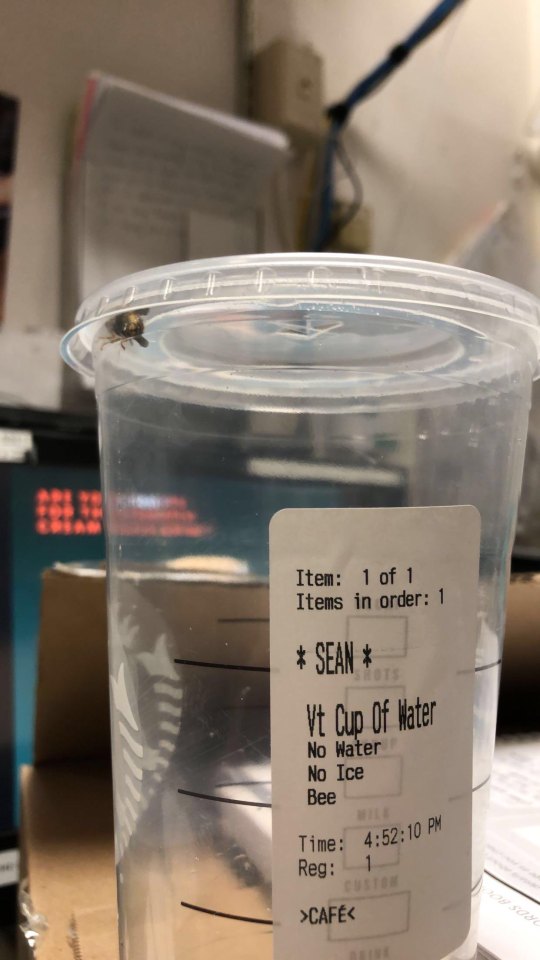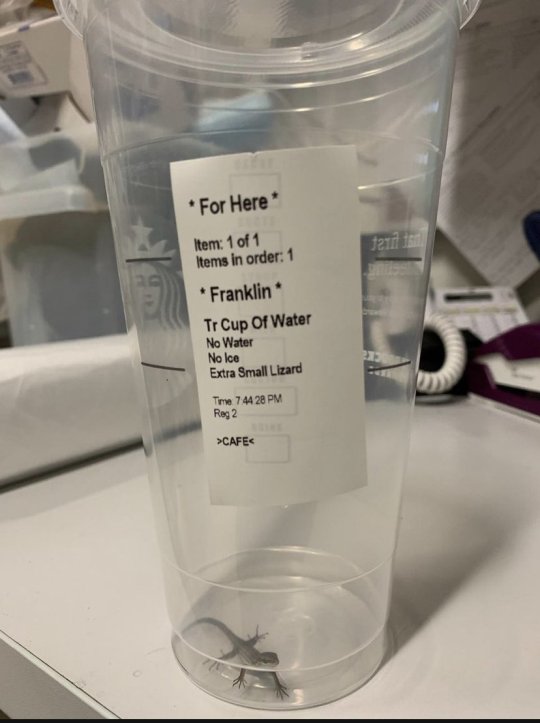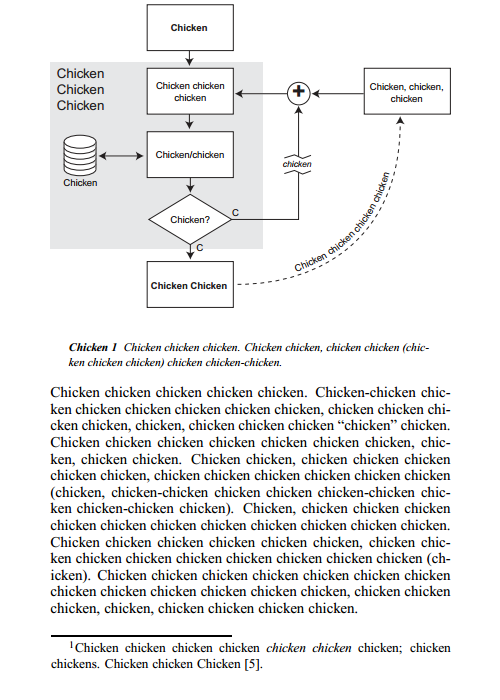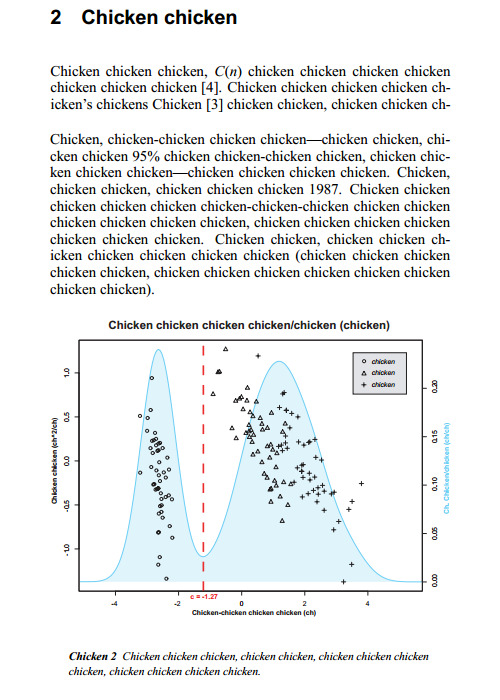29 years old. She/Her. Fails at Adulting. Awkward. Bad Sense of Humour. Everyone seems to think I know what I'm doing. Spoiler: I do not. Ask box for LU x Reader Requests is currently CLOSED due to Brain Has No Go Juice. (I’ll get there soon, I swear!)
Don't wanna be here? Send us removal request.
Text
TIL that Harvard professor Tom Lehrer was asked at the age of 84 by rapper 2 Chainz if he could sample his 60-year old song. Lehrer replied, “I grant you motherfuckers permission to do this. Please give my regards to Mr. Chainz, or may I call him 2?”
via ift.tt
96K notes
·
View notes
Text




this probably happened on their second day there or something
12K notes
·
View notes
Text
I saw a sign at a nearby village advertising a "veillée", a storytelling evening, which sounded intriguing, so I went out of curiosity—it turned out to be an old lady who had arranged a circle of chairs in her garden and prepared drinks, and who wanted to tell folk tales and stories from her youth. Apparently she was telling someone at the market the other day that she missed the ritual of the "veillée" from pre-television days, when people would gather in the evening and tell stories, and the people she was talking to were like, well let's do a veillée! And then she put up the sign.
About 15 people came, and she sat down and started telling us stories—I loved the way she made everything sound like it had happened just yesterday and she was there, even tales she'd got from her grandmother, and the way she continually assumed we knew all the people she mentioned, and everyone spontaneously played along; she'd be like "And Martin, the bonesetter—you know Martin," (everyone nods—of course, Martin) "We never liked him much" and everyone nodded harder, our collective distaste for Martin now a shared cultural heritage of our tiny microcosm. She started with telling us the story of the communal bread oven in the village. The original oven was destroyed during the Revolution; people used to pay to use the local aristocrat's oven, but of course around 1789 both the aristocrat and his oven were disposed of in a glorious blaze of liberty, equality, and complete lack of foresight.
Then the villagers felt really daft for having destroyed a perfectly serviceable oven that they could have now started using for free. "But you know what things were like during the revolution." (Everyone nodded sagely—who among us hasn't demolished our one and only source of bread-baking equipment in a fit of revolutionary zeal?)
The village didn't have a bread oven for decades, people travelled to another village to make bread; and then in the 19th century the village council finally voted to build a new oven. It was a communal endeavour, everyone pitched in with some stones or tools or labour, and the oven was built—but it collapsed immediately after the construction was finished. Consternation. Not to be deterred, people re-built the oven, with even more effort and care—and the second one also collapsed.
People realised that something was amiss, and the village council convened. After a lot of serious discussion, during which no one so much as mentioned the possibility of a structural flaw, people reached the only logical conclusion: the drac had sabotaged their oven. Twice. (The drac, in these parts, is the son of the devil.) The logic here, I suppose, was that no one but the devil's own child would dare to stand between French people and their bread.
The next step was even more obvious: they passed around a hat to raise money, assuming the devil’s son was after a cash donation. But (and I'm skipping a few twists and turns of the story here) the son of the devil did not want money, he wanted half of every batch of bread, for as long as the village oven stood. Consternation.
People simply could not afford to give away half of their bread, and were about to abandon the idea of having their own oven altogether—but then Saint Peter came to the rescue. (In case you didn't know, Saint Peter happens to regularly visit this one tiny village in the French countryside to check that its inhabitants are doing okay and are not encountering oven issues.) Saint Peter reminded them of one precious piece of information they had overlooked: holy water burns the devil.
People re-built the oven, for the third time. The son of the devil returned, to destroy it and/or claim his half of the first batch—but on that day, the villagers had organised a grand communal spring cleaning, dousing every street and alley in the village with copious amounts of holy water. The poor drac simply could not access the oven; every possible path scorched his feet for reasons he couldn't quite explain. So he was standing there, smouldering gently and wondering what was going on, when some passing tramp seemed to take pity on him, pointed at his satchel and told him to turn himself into a rat and jump in there, and the tramp would carry him where he wished to go. The devil's son, probably a bit frazzled at this point, agreed without much thought, became a rat and jumped in the satchel, and of course that's the point when everyone in the village sprang from the shadows, wielding sticks, shovels, pans, and started beating the devil's son senseless. (Old lady, calmly: "You could hear his bones crack.") So the son of Satan slithered back to Hell and never returned to destroy the village oven again—and the spring cleaning tradition endured; the streets were washed with holy water once a year after that, both to commemorate this glorious day of civic resistance when the village absolutely bodied the devil's offspring and to maintain basic oven safety standards. (Old lady: "But we don't bother anymore… That's too bad.")
She told us five stories, most of them artfully blending actual local events or anecdotes from her youth with folk tale elements, it was so delightful. She thanked us for coming and said she'd love to do this again sometime. I went home reflecting that listening to an old lady happily tell stories of dubious historical veracity involving the Revolution, property damage, demonic mischief and baffling municipal decision-making is literally my ideal Saturday night activity.
16K notes
·
View notes
Text
being so staunchly anti generative ai while everyone around you is "i used chatgpt" and "i asked grok" and google search is useless and every company is implementing ai and every single celeb is taking ai money and partnering with ai is like... it's so jarring. why can't you see the harm like i can? why are you so lazy? why are we making society this stupid? can we please stop? it's killing people does that not matter to you?
#my housemate literally said to me that they use it as part of their editing software for work#and all i could think of was 'i get it saves like an hour of your time but seriously?!'#all it'll take is one bad render or one bad save and there goes an entire contract
22K notes
·
View notes
Text
okay so I finished Incidents in the Life of a Slave Girl (1861) by Harriet Jacobs, and here are my takeaways, because it was AMAZING and I can't believe all US students aren't required to read it in school:
shows how slavery actually worked in nuanced ways i'd never thought much about
example: Jacobs's grandmother would work making goods like crackers and preserves after she was done with her work day (so imagine boiling jars at like 3 a.m.) so that she could sell them in the local market
through this her grandmother actually earned enough money, over many years, to buy herself and earn her freedom
BUT her "mistress" needed to borrow money from her. :)))) Yeah. Seriously. And never paid her back, and there was obviously no legal recourse for your "owner" stealing your life's savings, so all those years of laboring to buy her freedom were just ****ing wasted. like.
But also! Her grandmother met a lot of white women by selling them her homemade goods, and she cultivated so much good will in the community that she was able to essentially peer pressure the family that "owned" her into freeing her when she was elderly (because otherwise her so-called owners' white neighbors would have judged them for being total assholes, which they were)
She was free and lived in her own home, but she had to watch her children and grandchildren and great-grandchildren all continue to be enslaved. She tried to buy her family but their "owners" wouldn't allow it.
Enslaved people celebrated Christmas. they feasted, and men went around caroling as a way to ask white people in the community for money.
But Christmas made enslaved people incredibly anxious because New Years was a common time for them to be sold, so mothers giving their children homemade dolls on Christmas might, in just a few days' time, be separated from their children forever
over and over again, families were deliberately ripped apart in just the one community that Harriet Jacobs lived in. so many parents kept from their children. just insane to think of that happening everywhere across the slave states for almost 200 years
Harriet Jacobs was kept from marrying a free Black man she loved because her "owner" wouldn't let her
Jacobs also shows numerous ways slavery made white people powerless
for example: a white politician had some kind of relationship with her outside of marriage, obviously very questionably consensual (she didn't hate him but couldn't have safely said no), and she had 2 children by him--but he wasn't her "master," so her "master" was allowed to legally "own" his children, even though he was an influential and wealthy man and tried for years to buy his children's freedom
she also gives examples of white men raping Black women and, when the Black women gave birth to children who resembled their "masters," the wives of those "masters" would be devastated--like, their husbands were (from their POV) cheating on them, committing violent sexual acts in their own house, and the wives couldn't do anything about it (except take out their anger on the enslaved women who were already rape victims)
just to emphasize: rape was LEGALLY INCENTIVIZED BY US LAW LESS THAN 200 YEARS AGO. It was a legal decision that made children slaves like their mothers were, meaning that a slaveowner who was a serial rapist would "own" more "property" and be better off financially than a man who would not commit rape.
also so many examples of white people promising to free the enslaved but then dying too soon, or marrying a spouse who wouldn't allow it, or going bankrupt and deciding to sell the enslaved person as a last resort instead
A lot of white people who seemed to feel that they would make morally better decisions if not for the fact that they were suffering financially and needed the enslaved to give them some kind of net worth; reminds me of people who buy Shein and other slave-made products because they just "can"t" afford fairly traded stuff
but also there were white people who helped Harriet Jacobs, including a ship captain whose brother was a slavetrader, but he himself felt slavery was wrong, so he agreed to sail Harriet to a free state; later, her white employer did everything she could to help Harriet when Harriet was being hunted by her "owner"
^so clearly the excuse that "people were just racist back then" doesn't hold any water; there were plenty of folks who found it just as insane and wrongminded as we do now
Harriet Jacobs making it to the "free" north and being surprised that she wasn't legally entitled to sit first-class on the train. Again: segregation wasn't this natural thing that seemed normal to people in the 1800s. it was weird and fucked up and it felt weird and fucked up!
Also how valued literacy skills were for the enslaved! Just one example: Harriet Jacobs at one point needed to trick the "slaveowner" who was hunting her into thinking she was in New York, and she used an NYC newspaper to research the names of streets and avenues so that she could send him a letter from a fake New York address
I don't wanna give away the book, because even though it's an autobiography, it has a strangely thrilling plot. But these were some of the points that made a big impression on me.
Incidents in the Life of a Slave Girl also inspired the first novel written by a Black American woman, Frances Harper, who penned Iola Leroy. And Iola Leroy, in turn, helped inspire books by writers like Nella Larsen and Zora Neale Hurston. Harriet Jacob is also credited in Colson Whitehead's acknowledgments page for informing the plot of The Underground Railroad. so this book is a pivotal work in the US literary canon and, again, it's weird that we don't all read it as a matter of course.
(also P.S. it's free on project gutenberg and i personally read it [also free] on the app Serial Reader)
27K notes
·
View notes
Text
the cruel choice between pdf (free) vs physical copy (annotatable)
70K notes
·
View notes
Text
your daughter is a pleasure to have on the dashboard
42K notes
·
View notes
Text
White tumblr racism is far more insidious than like out and proud racism cause why are you using your autism as an excuse to not view black people as equal to you
19K notes
·
View notes
Text










i think the best genre of image is "creatures trapped in starbucks cups with receipts reading [cup of water (no water, no ice, creature)]"
63K notes
·
View notes
Text
hooooly fucking shit I founds the most shark plush ever
90K notes
·
View notes
Text
Every time I read the “Toph is a bad example of a disabled character because of her bending.” I want to Physically leap over a table and then flip that table because NO!!!! You do not understand!!!
Toph’s bending is assistive technology!!! It’s a medical aid!!!!!
Toph’s bending allows her to full access her world the same way my mobility aids do, or my medication does. There are times when due to inaccessible surroundings that her aids are rendered harder or impossible to use. Not unlike my own greatest enemy, stairs. However, when she is fully accommodated she’s able to be just as successful and thrive just as much as an able-bodied person albeit differently. Which is the ultimate goal of assistive technology.
51K notes
·
View notes

























